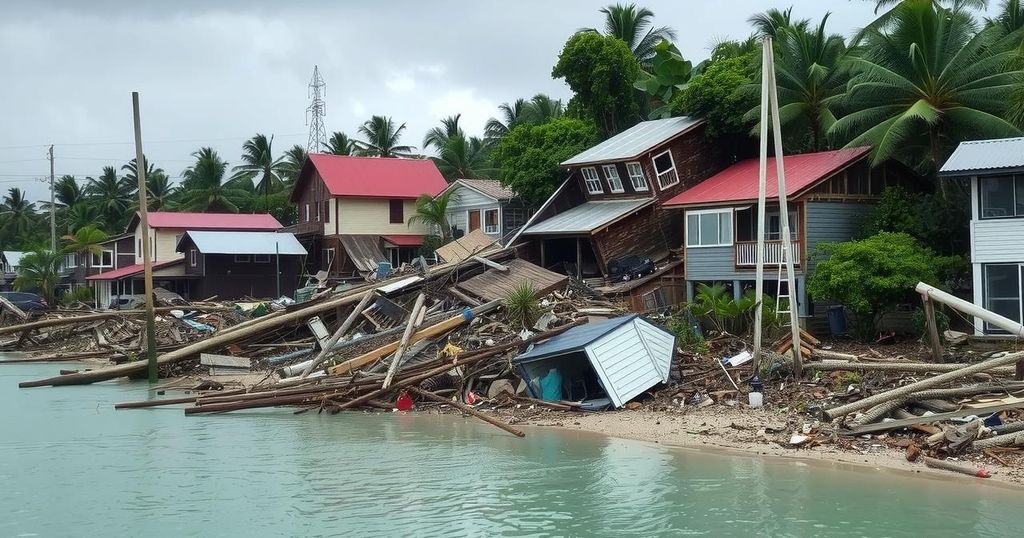Cyclone Chido Devastates Mayotte: Hundreds Feared Dead as Recovery Efforts Commence
Cyclone Chido has struck Mayotte, leaving hundreds feared dead and causing widespread destruction. Officials indicate that current casualty figures may drastically rise, reflecting a humanitarian crisis. France is deploying rescuers and supplies to aid recovery, while the cyclone continues to threaten neighboring Mozambique. Experts warn of the intensifying impact of climate change on such extreme weather events.
The French territory of Mayotte is facing a devastating humanitarian crisis following the catastrophic impact of Cyclone Chido, which struck the region over the weekend. Mayotte’s Prefect, François-Xavier Bieuville, indicated on local television that the death toll could reach several hundred, potentially extending into the thousands, marking it as one of the worst cyclones to hit the island in nearly a century. The storm has caused extensive damage, demolishing infrastructure, devastating homes, and leaving many residents without electricity or basic necessities.
The French government has swiftly mobilized rescue teams and essential supplies to assist the island’s recovery efforts. As of now, the confirmed fatalities stand at 11, with injuries exceeding 250, though officials anticipate that these figures will rise sharply as search and rescue operations continue. The cyclone’s winds, recorded at over 220 kph (136 mph), signify its categorization as a level 4 cyclone, bringing unprecedented destruction to the impoverished territory, known as the poorest within the European Union.
As the situation unfolds, it has been reported that the most severe destruction occurred in the informal settlements that characterize the island. Mayor Bieuville expressed concerns over the accuracy of the current casualty figures, stating, “This figure is not plausible when you see the images of the slums. I think the human toll is much higher.” Moreover, French President Emmanuel Macron has expressed solidarity with the inhabitants of Mayotte, and support is being coordinated through various governmental and humanitarian channels.
In parallel, Cyclone Chido has not only impacted Mayotte but is continuing its destructive path towards Mozambique, where authorities warn that more than 2 million people are at risk. The cyclone season, which persists until March, has been particularly brutal in recent years, with past cyclones resulting in thousands of deaths across southern Africa. This alarming pattern highlights the urgent need for international aid and support for the affected regions as the threat of further flooding and disease outbreaks looms, exacerbating the plight of vulnerable populations.
Cyclone season in the southwestern Indian Ocean, which extends from December to March, has consistently brought devastating weather events to regions such as Mayotte and neighboring territories. The recent Cyclone Chido exemplifies a troubling trend where rising sea temperatures and climate change contribute to the increased severity of such storms, placing immense strain on already impoverished communities. Mayotte, with its population of over 300,000, is France’s poorest territory and received dire warnings from officials as they assessed the cyclone’s aftereffects. Historical data indicates that similar cyclones, such as Idai in 2019, have resulted in significant casualties across the region, underscoring the ongoing humanitarian crises these natural disasters can trigger.
The impact of Cyclone Chido on Mayotte is a stark reminder of the vulnerability of impoverished regions to natural disasters, particularly amidst the ongoing threats posed by climate change. The potential for drastically higher casualty figures marks this as a critical moment for the French government and international agencies to respond effectively and support recovery efforts. As the cyclone continues to pose risks in the region, it is imperative that concerted efforts are made to assist the affected populations and prevent future tragedies.
Original Source: www.cbsnews.com




Post Comment